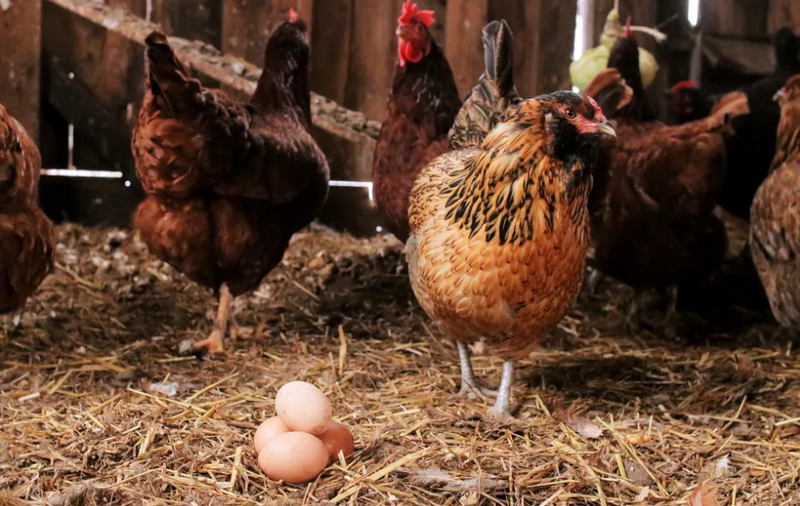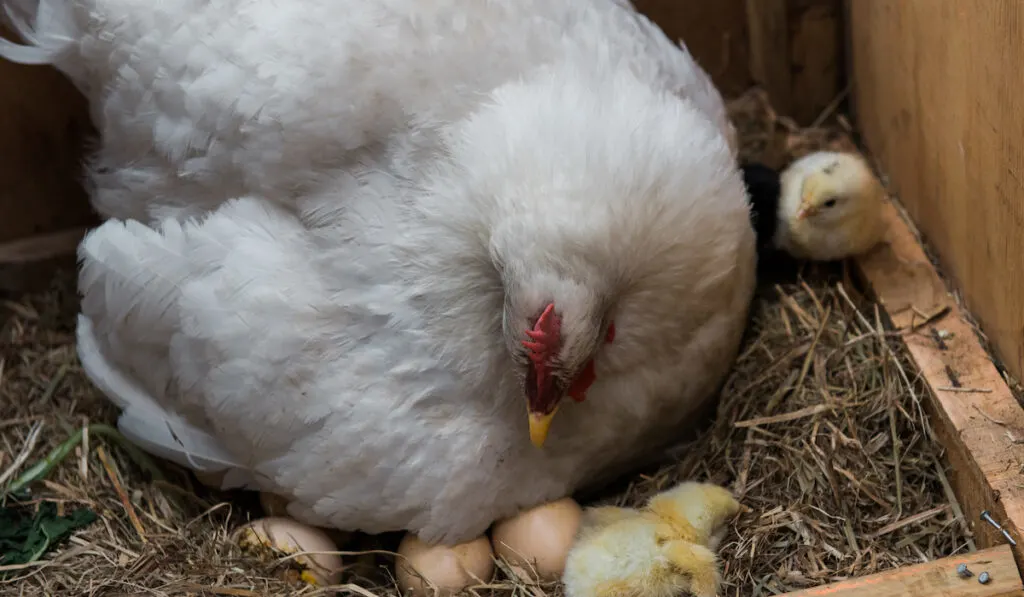Do Hens Produce Eggs Without A Rooster? A Comprehensive Guide
So, you’re probably wondering, “Do hens produce eggs without a rooster?” Well, let me tell you, this question has been floating around for ages, and it’s time to clear the air. Whether you’re a backyard chicken enthusiast or just curious about how chickens work, you’ve come to the right place. We’re diving deep into the world of hens, eggs, and everything in between. Get ready for some mind-blowing facts that’ll change the way you think about chickens forever.
Picture this: you’ve got a hen in your backyard, and she’s laying eggs like it’s her job. But wait, there’s no rooster in sight. How is this even possible? The answer lies in the fascinating biology of chickens. Hens are natural egg-laying machines, and they don’t need a rooster to lay eggs. Surprising, right? Let’s break it down and explore the science behind it.
This guide is packed with information that’ll answer all your burning questions. From understanding the basics of egg production to uncovering the role of roosters, we’ve got you covered. So, grab a cup of coffee, sit back, and let’s dive into the world of hens and eggs!
Table of Contents
- Hen Biology: The Basics
- What’s the Role of a Rooster?
- Do Hens Lay Eggs Without a Rooster?
- Fertilized vs. Unfertilized Eggs
- The Hen’s Laying Cycle
- Factors Affecting Egg Production
- Common Myths About Egg Laying
- Health Benefits of Eggs
- Sustainability in Egg Production
- Wrapping It Up
Hen Biology: The Basics
Alright, let’s start with the basics. Hens are incredible creatures, and their biology is fascinating. Did you know that hens have two ovaries, but only one is functional? Yep, it’s true. The right ovary is the one that does all the heavy lifting when it comes to egg production.
Now, here’s the cool part. Hens are naturally wired to lay eggs, and they do it whether there’s a rooster around or not. The process is driven by hormones, and it’s a cycle that repeats itself every 24 to 26 hours. So, even if you don’t have a rooster in your flock, your hens will still lay eggs. Pretty neat, huh?
Understanding the Ovaries
Hens have tiny little eggs stored in their ovaries, and as they mature, they’re released into the oviduct. This is where the magic happens. The egg travels through the oviduct, picking up layers of albumen, shell membranes, and finally, the hard shell. By the time it exits the hen, it’s ready to be collected and enjoyed.
What’s the Role of a Rooster?
So, if hens can lay eggs without a rooster, what’s the point of having one? Great question! Roosters play a crucial role in fertilizing eggs. When a rooster mates with a hen, his sperm fertilizes the egg, and that’s how you get fertilized eggs. But here’s the kicker: fertilized eggs are only necessary if you want to hatch chicks. If you’re just looking for eggs to eat, a rooster isn’t required.
Do You Need a Rooster for Eggs?
The short answer is no. You don’t need a rooster for your hens to lay eggs. In fact, many backyard chicken keepers choose to keep hens only, as roosters can be noisy and sometimes aggressive. Plus, unfertilized eggs are perfectly safe to eat and are what you typically find in grocery stores.
Do Hens Lay Eggs Without a Rooster?
Let’s get to the heart of the matter. Do hens produce eggs without a rooster? The answer is a resounding yes. Hens are natural egg-laying machines, and they don’t need a rooster to do their thing. The process is driven by hormones, and it happens whether there’s a rooster around or not.
Now, if you’re wondering how often hens lay eggs, it depends on several factors, including age, breed, and diet. On average, a healthy hen can lay one egg per day, but this can vary depending on the conditions.
How Often Do Hens Lay Eggs?
Some breeds, like the White Leghorn, are known for their high egg production, laying up to 300 eggs per year. Other breeds, like the Silkie, lay fewer eggs but make up for it with their unique appearance and temperament. Regardless of the breed, hens will continue to lay eggs as long as they’re healthy and well-cared for.
Fertilized vs. Unfertilized Eggs
Now, let’s talk about the difference between fertilized and unfertilized eggs. Fertilized eggs are eggs that have been fertilized by a rooster, meaning they have the potential to develop into chicks. Unfertilized eggs, on the other hand, are eggs that haven’t been fertilized and are safe to eat.
Here’s the thing: unless you’re trying to hatch chicks, you probably don’t need fertilized eggs. Most people who keep backyard chickens are more interested in collecting eggs for consumption than in breeding chicks.
Can You Eat Fertilized Eggs?
Yes, you can eat fertilized eggs, but they need to be refrigerated and consumed quickly to prevent the embryo from developing. If you’re not planning to hatch chicks, it’s usually easier to stick with unfertilized eggs. They’re just as nutritious and don’t require any special handling.
The Hen’s Laying Cycle
Let’s take a closer look at the hen’s laying cycle. It’s a fascinating process that involves several stages, from the release of the egg from the ovary to the formation of the hard shell. Here’s a quick breakdown:
- Ovulation: The egg is released from the ovary and enters the oviduct.
- Albumen Formation: The egg picks up layers of albumen, or egg white, as it travels through the oviduct.
- Shell Membrane Formation: The egg is wrapped in a protective membrane.
- Shell Formation: The egg is coated in a hard shell, which gives it its final shape.
- Exit: The egg is laid, and the cycle begins again.
This entire process takes about 24 to 26 hours, which is why hens typically lay one egg per day.
Factors Affecting Egg Production
While hens are natural egg-laying machines, there are several factors that can affect their production. Here are a few things to keep in mind:
- Age: Younger hens tend to lay more eggs than older hens.
- Breed: Some breeds are better egg producers than others.
- Diet: A well-balanced diet is essential for optimal egg production.
- Lighting: Hens need about 14 to 16 hours of light per day to lay eggs consistently.
- Stress: Stress can reduce egg production, so it’s important to keep your hens happy and healthy.
By paying attention to these factors, you can help ensure that your hens are laying eggs at their best.
How to Boost Egg Production
If you’re looking to boost egg production, here are a few tips:
- Provide a balanced diet rich in protein and calcium.
- Ensure your hens have access to clean water at all times.
- Install lighting in your coop to extend the day during the winter months.
- Keep your hens in a clean and stress-free environment.
These simple steps can make a big difference in your hens’ egg production.
Common Myths About Egg Laying
There are a lot of myths out there about egg laying, and it’s time to set the record straight. Here are a few common myths and the truth behind them:
- Myth: Hens need a rooster to lay eggs.
- Truth: Hens can lay eggs without a rooster, but the eggs won’t be fertilized.
- Myth: All hens lay eggs at the same rate.
- Truth: Egg production varies depending on the breed, age, and health of the hen.
- Myth: Fertilized eggs are healthier than unfertilized eggs.
- Truth: There’s no nutritional difference between fertilized and unfertilized eggs.
Now that we’ve cleared up some of these myths, you can feel confident in your egg-laying knowledge.
Health Benefits of Eggs
Eggs are not only delicious but also incredibly nutritious. They’re packed with protein, vitamins, and minerals that are essential for a healthy diet. Here are a few health benefits of eggs:
- Protein: Eggs are a great source of high-quality protein, which is essential for building and repairing tissues.
- Vitamins: Eggs are rich in vitamins A, D, and B12, which support immune function and bone health.
- Minerals: Eggs contain minerals like iron and zinc, which are important for energy production and immune function.
So, whether you’re enjoying a sunny-side-up egg for breakfast or using them in baking, you’re doing your body a favor.
Sustainability in Egg Production
In today’s world, sustainability is more important than ever. When it comes to egg production, there are several ways to make it more sustainable:
- Backyard Chickens: Keeping backyard chickens is a great way to reduce your carbon footprint and ensure that your eggs are fresh and local.
- Organic Feeds: Feeding your hens organic, non-GMO feeds can help reduce the environmental impact of egg production.
- Recycling Waste: Composting chicken waste can help reduce waste and provide nutrient-rich compost for your garden.
By making small changes, you can make a big difference in the sustainability of egg production.
Wrapping It Up
So, there you have it. Hens can and do produce eggs without a rooster, and they’re natural egg-laying machines. Whether you’re keeping backyard chickens or just curious about how chickens work, this guide has hopefully answered all your questions.
Remember, egg production is influenced by several factors, including age, breed, diet, and lighting. By paying attention to these factors, you can help ensure that your hens are laying eggs at their best. And don’t forget the health benefits of eggs – they’re packed with nutrients that are essential for a healthy diet.
So, what are you waiting for? If you’ve been thinking about starting a backyard flock, now’s the time to do it. And if you’re already a chicken enthusiast, share this article with your friends and help spread the word about the fascinating world of hens and eggs.
Got any questions or comments? Drop them below, and let’s keep the conversation going!
Martin Lawrence's Journey: Exploring His Life, Career, And Marriage
Exploring The Magic Of T-Pain Songs: A Journey Through His Musical Legacy
Mudvayne Lead Singer Wife: Exploring The Life And Relationships

Do Chickens Lay Eggs Without a Rooster? Chicken Breed Guide

Can Hens Lay Eggs Without A Rooster? The Hen's Loft

How Chickens Lay Eggs Without a Rooster Farmhouse Guide